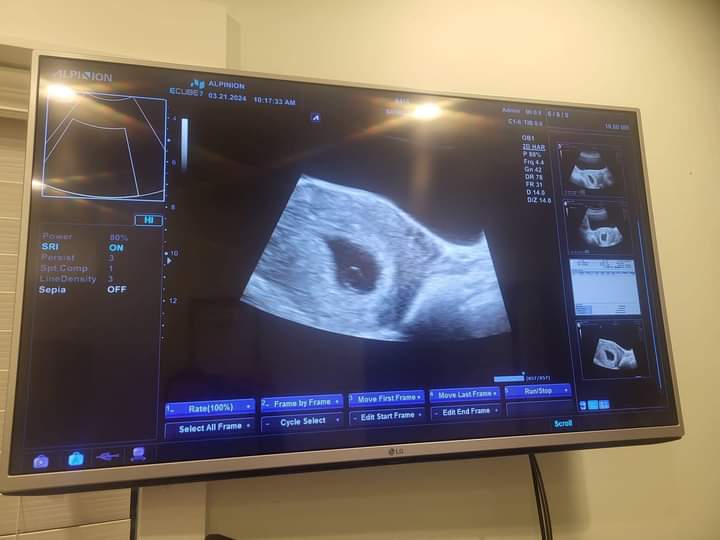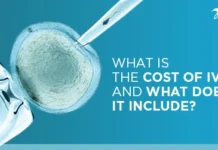Things that can cause a miscarriage in the first 8 weeks.
After a very long period of interaction with different women who once had a miscarriage in their pregnancy, I have finally decided to write on why some women have miscarriage in the first 8 weeks of pregnancy and what to do to prevent it from happening.
Any pregnancy that terminates on its own within 20 weeks is called a miscarriage.
Here are:
Things that can cause a miscarriage in the first 8 weeks
1. Stress
Stress is usually a cause of miscarriage in early pregnancy and mostly occurs within the first 8 weeks…Many women who are pregnant and still involve themselves in strenuous activities like traveling, flight ✈️ here and there etc may have a miscarriage. As a woman who has had traumatizing episodes of recurrent miscarriages, when next you are pregnant, stay in one place.
2. Hormone imbalance
The female hormones like progesterone and oestrogen are very important in maintaining pregnancy for 37 weeks.
For example, women with untreated low progesterone before and during pregnancy stand a high chance of having a miscarriage before 8 weeks…this is because, it it progesterone that sustains pregnancy and make sure it gets to 9 months before you deliver…imagine when it is low… miscarriage likely to happen …Low level of progesterone during pregnancy can be corrected by taking taking duphastone or cyclogest but discuss with your doctors first.

3. Alcohol intake
Pregnant women who take alcohol will likely have a miscarriage or pregnancy loss within the first 8 weeks of pregnancy….So, avoid alcohol during pregnancy for your own good …. alcohol can cause uterine contractions and cause pregnacare loss.
4. Smoking
Smoking and pregnancy are sworn enemies you know. Cigarettes smoking cause placenta abruptio leading to early abortion within 8 weeks of pregnancy. Don’t smoke when pregnant.
5. Chromosomal abnormalities
Some babies are not properly formed from the beginning in the womb and nature have a way of getting rid of such deformed embryos early on before they fully develop…as such badly formed embryos are not compatible with life. About 40 – 50 percent of miscarriages in that occur within 8 to 12 weeks was gotten rid of by nature…..
6. Cervical incompetence
Some women have short and incompetent (lax or weak) cervix that cannot carry a baby for long without it giving way….Women with incompetent cervix usually have a miscarriage usually before 12 weeks….so it is important such a woman do cervical cerclage at 8 weeks or earlier.
If you are a woman who has had a cerclage, you will carry the pregnancy to 9 months and when it is time for you to deliver or close to the time, the stitch will be removed.
7. Herbs
Some women cannot just do without taking herbal medicine and this have its repercussions…herbs are usually mixed with alcohol (dry gin) and the preparation can cause intense uterine contractions and subsequent early miscarriage…No HERBS IN PREGNANCY PLEASE.
8. Infection
Any infection that can cause you to have a fever can cause a miscarriage… Infection like malaria, pneumonia, upper respiratory tract infection (flu), urinary tract infection (UTI), vaginal infection, pelvic inflammatory disease etc can cause a miscarriage in the first 8 weeks of pregnacy and beyond. So, treat all infection promptly to avoid this complications.
9. Fibroids
Not any fibroids though, but submucous fibroids and the very large type can cause recurrent miscarriages within every 8 weeks of pregnacy. Submucous fibroids for example can prevent implantation from even taking place.
10. Antiphospholipid syndrome
Here thee woman’s own dysfunctional immune system sees the baby a foreign and does every thing within its power to get rid of the baby happening as early as 8 weeks of pregnancy
Other common causes of miscarriage at 8 weeks of pregnancy or gestation include Rhesus group incompatibility, anemia , scarred womb, and so on.
Thank you for reading.
Written by Dr Udomoh ESHEMOKHA
Facebook Nigeria Health Blog
Tiktok: Nigeria Health Blog
YouTube: Nigeria Health Tv
























